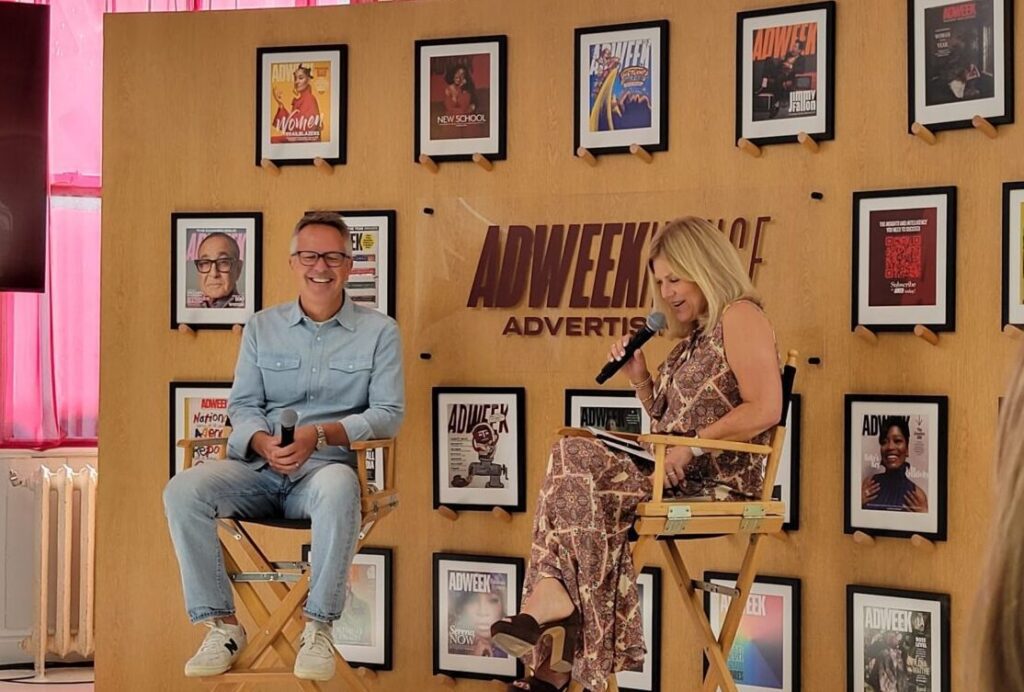Google Rankings, Results Come Under Fire
Google’s search rankings are under fire after a Wall Street Journal article highlighted that the search giant is increasingly favoring its own properties over natural results from outside sites, especially when it comes to Google Places and local results. This might not be a bad thing for users, but it depends on how good Google Place listings are. Google Instant also seems to be getting some raised eyebrows after a bit of research that showed that of the 26 letters of the alphabet, 21 have brands as first Instant suggestions. (TechCrunch, Econsultancy)
Building Deep Links into E-commerce Product Pages
It’s not easy getting links into categories or product-detail pages (PDPs) of e-commerce websites, which is a problem since these are the ones that generate revenue. Among the ways to build deep links into e-commerce pages are product reviews, sponsorships, guest posts, linkbait on PDPs, giving more detail than your competitors, giveaways and contests, getting links from your brand evangelists, and local links. (SEOmoz)
Answers from Social Networks vs. Search Engines
The Internet gives us a broad audience from which to glean opinions and answers, and many users are now flocking to social networks to ask for recommendations. Bing’s recent partnership with Facebook to “make search more social” highlights this trend toward search results that are more social and human. (Search Engine Land)
SEO Planning for 2011
Looking back is a good way to prepare for the future, so here’s a quick look at the major SEO happenings from 2010: page speed becomes a ranking factor, Google’s May Day update, Google Caffeine, Google Instant, Google Instant Previews and Bing-Yahoo. In 2011, social signals will continue to drive search ranking signals, performance will remain a focus for Google, and Google and/or Bing will make a major shift in search. For publishers, this means you must be as unique as possible. (Search Engine Watch)
Reactions to Google Chrome OS
Here’s one of many negative reactions to Google’s Chrome OS on the new Cr-48 laptops. But beyond the lackluster OS is a bigger story: the rise of the Web OS. Google might be wise to target Chrome OS to the enterprise. (GigaOM)
Google Voice Search Recognition
Google’s Voice Search product just got more personal. Taking into account the fact that everyone has a different voice, the search company launched personalized voice recognition Tuesday. (Google Mobile Blog)
Facebook’s Struggles with Free Speech and Civility
Here’s an inside look at Facebook’s "hate and harassment team," the group of employees charged with the task of violating or illegal content from the social networking site. Their decision to shut down a page used by WikiLeaks supporters organizing hacks last week highlights the group’s power and weighty responsibility. (NYTimes.com)
SEO on the Cheap
You don’t have to drop a big wad of cash in order to get good SEO results. Attending local conferences, "unconferences," using exchange services and using Twitter are among the cheap tactics to use if you’re a small company that can’t afford the more costly approaches. (SEOmoz)
The New Android Market
Users will benefit from a better, smoother experience, while developers have some new things to take into account (e.g., content ratings). The one "fix" still missing? Any improvement to the clunky payment process. (Econsultancy, ReadWriteWeb)
Mobile-App Revenues: $35 Billion by 2014
According to projections from IDC, mobile-app revenue will surpass $35 billion in 2014. This would mark huge growth from $4.9 billion this year. (CNET)
Google Webmaster Tools 101
Google Webmaster Tools is an essential weapon in your website’s arsenal. If you want to improve your site’s visibility but aren’t sure where to start, this overview will serve as a helpful guide. (ClickZ)
The Anatomy of a Perfect Landing Page
Here’s a visually appealing chart that ticks off the 10 most important features of landing pages that draw users in. Among them are clear and concise headlines, strong grammar, and a strong call to action. The chart also lists what colors are good for what kind of sites. (Formstack)
Daily Deals Are Popular This Holiday Season
Websites offering daily deals have grown in popularity, thanks in large part to Groupon. According to a survey, 87.2 percent of U.S. online buyers said they would at least consider using a daily-deal site for holiday shopping this year. (eMarketer)
9 Web Tools to Keep Your Business Running During the Holidays
If you’re looking for help with running your business while you’re away during the holiday season, these nine tools can help. Among them are Box.net, DimDim, Salesforce and LogMeIn. (Mashable)
IAB Lobbies Harder for ‘Self-Policing’ Status
The Internet Advertising Bureau is expanding its lobbying efforts to try and preserve the industry’s “self-policing” status. The IAB is also forming the Mobile Marketing Center of Excellence in response to the blossoming mobile ad sector. (paidContent.org)
The State of E-mail Marketing
After attending the Email Insider Summit in Utah, this writer shares some insights gleaned from the event. One thing that’s clear is that e-mail is alive and growing. However, one company shares that e-mail click-through rates have declined an average of 14 percent during the past year. Nevertheless, rejoicing or panicking are not the responses to embrace here. Instead, e-mail marketers should understand that “driving improvements in email means we need to do a better job navigating internal politics.” (MediaPost)
Facebook Ads: Relevant?
Are Facebook ads really as relevant as they should be, or have been reported to be? Not quite. For one thing, the social networking giant doesn’t appear to tweak its ads based on users’ feedback. Still, Facebook’s new profile interface seems to be teasing out more information from its users. (WebProNews)
2011: The Year of Online Video Ads – Finally?
Will online video advertising finally come through in 2011? According to eMarketer, online video ad spending in the U.S. in 2010 was $1.42 billion. This figure is expected to grow to $1.97 billion in 2011. While other online ad formats will remain somewhat stagnant, online video ad spending will grow by 38.6 percent, compared to just 11.4 percent for banner ads. (eMarketer)
Ad Text Optimization
When you’re running AdWords text ads, test the big ideas first and understand your competitors, the keywords and search queries triggering the ad text, and the landing page that the ad text drives to. Once you have a winning concept, drill down further. When do you stop testing ads? Never. (Search Engine Journal)
Display and Demand-Side Marketing in 2011
This post takes a look at what’s on the horizon in 2011. It touches on market shifts and growth in the U.S. and U.K., along with data, inventory, control, efficiency and profit, and the agency and innovation. Display growth and auction-based buying are due to see big years ahead. (Econsultancy)
Code of Conduct for PPC Marketers
There are ethical ways to conduct yourself as a paid-search professional. Embrace transparency, be accountable when something goes wrong, always do your best, don’t click competitor ads to drive up their costs, don’t feel the need to just spend the budget you’re given, and respect privacy and data security. These are among the core principles paid-search professionals should keep in mind. (Search Engine Land)
How Do Tweets Affect Search Rankings?
If you’d like to help with this experiment to find out how links within Facebook and Twitter influence search rankings, read this post and lend a hand. (SEOmoz)
Contextual Search: Google Results Without Search
Marissa Mayer made an interesting comment at LeWeb ’10 in Paris about a project Google is working on: contextual discovery. “This means being able to look at either a person’s browsing profile or their location profile and serving up interesting data to them without them searching for anything. Yes, it’s Google results without the search.” (TechCrunch)
Affiliate Marketing is Dumb
Affiliates are “dumb” – meaning, “they don’t have the same advantages that other marketing channels have: they lack the same tools for success that your SEM, SEO, email and display teams have.” Among the five reasons why affiliates are pushed into this corner are the lack of Web analytics data, missing purchase history and lack of attribution data. (Search Engine Land)
Google +1 Screenshot
Google +1, formerly known as Google Me and Emerald Sea, might have been spotted for the first time thanks to a screenshot. At first glance it may not seem like much, but a closer look reveals an interesting toolbar area atop Google’s pages. (TechCrunch)
Don’t Ignore SEO for Bing
Here’s another call to remember Bing in your SEO efforts. The problem with thinking that ignoring Bing is that the search engine is heavily focused on e-commerce that can provide modest, and incremental, traffic and revenue. The general SEO approach for Bing involves consistency, efficiency, quality and links. Specifically, XML sitemaps, a centralized RSS page and parameter handling are all important factors for Bing-focused SEO. (Search Engine Watch)
AdWords Gets Automated Rules, New Keyword Tool Features
Google is listening to its AdWords clients and had responded by unveiling automated rules and three new ways to filter and refine keyword lists. (Inside AdWords 1, Inside AdWords 2)
New E-mail Metrics
Measuring how long someone is reading an e-mail message is the next step toward quantifying true engagement. Also, while opens are fine for measuring surface-level activities, tools are emerging to give marketers insights into whether someone actually opened and read an e-mail message. (Econsultancy)
Google Places SEO
This chart-filled post shares insights into SEO for Google Places. After considering some key factors (including correlation/causation, ranked correlations and common sense), there’s a rich dataset to dive into, along with helpful takeaways. (SEOmoz)
 Network
Network

